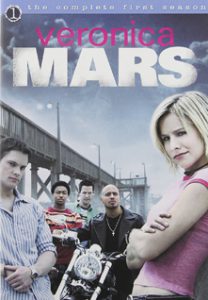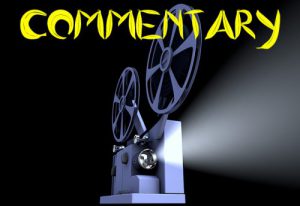I asked my friend Jeremy if he had checked out Entertainment Weekly’s 50 Most Powerful Superheroes list in the latest issue and he said he doesn’t “pay attention to those crap lists.” But then he quickly noted the oddity of a 50 Most Powerful Superheroes list where “powers” count for 10 out of 100 possible points.
Undeniably, EW’s list is doing what it’s supposed to do: get people talking. Still, it’s a problematic list, for several reasons. It’s not the first time EW has put out a list with a big snub, but it really should’ve done better since this list was more scientific, featuring a chart of scores in “cultural impact,” “bankability,” “design,” “modern relevance,” “mythology,” “nemeses,” “originality,” “personality” and “powers.” At least it should’ve outlined its criteria so we could make sense of the oddities. Such as:
NON-COMIC BOOK CHARACTERS GET ALMOST COMPLETELY SNUBBED
The list includes 49 characters who originated in comic books, and one who did not — Buffy Summers from “Buffy the Vampire Slayer,” which was first a movie but is best known as a TV series, although yes, it is now a comic.
Throw in the fact that EW references other characters’ impact outside of comics (for example, Wolverine’s portrayal by Hugh Jackman in the “X-Men” films), and it’s clear that this isn’t a comics-only list, or at least it’s not supposed to be. But somehow there wasn’t room for Faith or Angel or Willow. Or, to continue the Joss Whedon theme, River or Echo.
Or Luke Skywalker or Harry Potter. Or other “HP” characters like Hermione, who is at the center of the superhero-themed Bullseye on the back page: “If you don’t think this girl’s a superhero, you’re just plain Ron.” I DO think she’s a superhero, though; it’s EW itself that snubbed her.
EW says it considered 155 candidates; I’d be interested to know if any of the aforementioned snubs ranked below 50. Maybe characters not at all associated with comics were not considered. That explains the “HP” omissions, and why Buffy was considered. But it doesn’t explain the “Star Wars” omissions, as “SW” has a massive comic presence. The mind boggles.
NON-SUPERPOWERED CHARACTERS MOSTLY GET SNUBBED
Batman, Robin and Batgirl make the list, so it’s clear that having superpowers is not a requirement for being a superhero. A handful of non-superpowered Marvel characters make the cut, too. Seemingly, this would open up EW to include someone like Katniss Everdeen from “The Hunger Games,” who doesn’t have superpowers but who is a larger-than-life Chosen One. Likely, the comic-book rule applies here, although this is never explicitly stated by EW.
FANTASY-UNIVERSE CHARACTERS GET SNUBBED
Maybe EW’s criteria was that if the fictional world is sufficiently removed from the real world, those characters weren’t considered. That might explain the absence of “Star Wars” characters, as that saga takes place in another galaxy, in another time. But that’s a stretch considering that all of the top 50 characters come from highly stylized versions of the real world, and that many of them have worlds-within-worlds on par with “HP,” such as the mythologies of Thor and Doctor Strange.

WONDER WOMAN IS OVERRATED
There’s no way to criticize the No. 1 pick without being politically incorrect or sounding sexist, but what the heck – an objective look at Wonder Woman’s status in all of EW’s categories shows she is being overrated. Don’t get me wrong: Gal Godot’s turn as WW is the best part of “Batman v. Superman: Dawn of Justice.” Her solo movie next year will probably be good; it’s certainly long overdue.
WW is on my short list of superheroes I want to see on the big screen. But she shouldn’t be awarded before that movie comes out, just like President Obama shouldn’t have been awarded with a Nobel Peace Prize before he had compiled a record as Commander in Chief (which, it turned out, wasn’t peace-oriented by any measure). And what if the movie sucks?
Linda Carter’s portrayal is iconic, but no one watches that 1970s TV show today or analyzes specific storylines. The 2011 TV pilot was canceled before it aired, and people who have seen the pilot say it deserved to be canceled. And this was in an era where the disadvantage of being a female-led show had long since been obliterated by “Buffy,” “Xena,” “Alias,” etc. Yes, WW was invented first, but by being mostly confined to comics, she hasn’t had a mainstream impact as great as Buffy, Katniss, Hermione, Padme or Rey.
Batman, Spider-Man and Superman are bigger commercial successes than Wonder Woman and have had bigger cultural impact; those are objective facts. In part, those facts come from industry bias against female superheroes, but they also come from the historical fact that – until recently – girls were less interested than boys in consuming superhero culture. It’s great that that has changed, but EW is jumping the gun; as of this point in time, WW is not more iconic than Batman by any measure.
THE LIST IS A WEIRD HODGEPODGE OF MAINSTREAM AND INSIDER SELECTIONS
As noted, this list snubs all non-comic characters other than Buffy Summers, all non-superhero characters who didn’t originate in comics, and most characters from universes sufficiently removed from contemporary Earth (such as “Harry Potter” or “Star Wars”).
But it’s not a comic-book insider list either. The writers don’t cite Wonder Woman’s amazing comic-book arcs as justification for her spot at No. 1; they cite her status as the first and most famous female comic-book superhero — which in a male-dominated superhero world, makes the achievement more impressive, and therefore gives her the tiebreaker, essentially.
This is a dangerous rabbit hole to go down, though. Maybe Spider-Man should get extra points for being of human origin in an alien-dominated superhero world. Maybe Batman should get extra points for being a completely normal human in a superpower-dominated superhero world.
Maybe Black Panther should get extra points for being a black superhero in a white-superhero-dominated world. Maybe Xander or Giles should get bonus points because they contributed to the good fight without having superpowers, whereas the rest of the Scooby Gang did. Maybe poor superheroes like Kick-Ass should get a nod over rich superheroes like Batman and Iron Man. And so forth.
Beyond the shaky choice for No. 1, the list becomes pretty much a ranking of commercial success and name recognition, as WW is followed by Spider-Man, Batman, Superman, Wolverine, Iron Man, Captain America and The Hulk. Then it gets somewhat into comic-book insider mode, with Black Panther at No. 9 as the highest-ranking character who an Average Joe on the street might not recognize.
Others in the not-quite-mainstream category include Deadpool, Black Widow, Doctor Strange, Captain Marvel, Luke Cage, Nick Fury, Hellboy, Falcon, Vision, Jessica Jones, Punisher, Shazam, Morpheus and Dr. Manhattan. Those characters are known to comic and pop-culture geeks, but in the mainstream, they are certainly more obscure than Luke Skywalker, Harry Potter or Katniss Everdeen.
SOME OTHER ODDITIES …
Superman ranks higher than Supergirl in the “powers” category: Superman rates a 9.7, Supergirl rates an 8.3. They have the exact same powers and weakness (kryptonite). Superman is more experienced using his powers, sure, but that shouldn’t account for such a wide gap; if Superman is a 9.7, Supergirl should be at least a 9.5. An 8.3 is indefensible.
Rogue scores a mere 7.0 in “powers”: “X-Men’s” Rogue can kill people with her touch, and permanently absorb all of their powers. Granted, she chooses not to do this, because she’s a good guy. But still, it doesn’t get much more powerful than that, and she should arguably be scored at 10.0. Maybe 9.8 if you want to account for the idea that she’s timid about using her powers. But not 7.0, which is the same score given to Batman, who — aside from having cutting-edge tech and being in great shape — has the same powers I do.
The Fantastic Four take up four spots: EW openly admits in some of the write-ups that the Fantastic Four haven’t had a good movie incarnation yet, but they still take up four spots in the top 50. And as with WW, the writers don’t outline the great comic arcs that put them on the list; basically, they are just well-known enough to make the cut even if the franchise has garnered a Fantastic Snore from movie-goers. Heck, the Invisible Woman isn’t even Jessica Alba’s most iconic superhero role; that would be Max from “Dark Angel.”
What did you think of EW’s rankings? What were the biggest snubs? Share your thoughts below.

